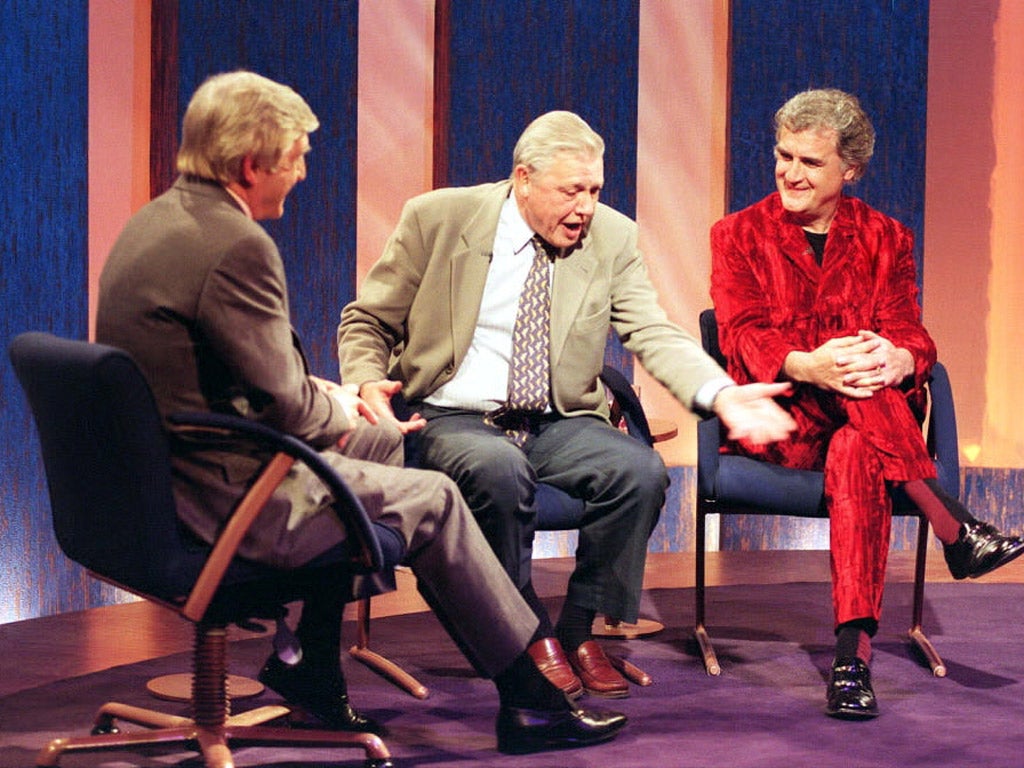Chat shows: Look who's talking
Everyone – politico, activist – seems to think they can play host. Luke Blackall points out that good conversation is an art

"The trouble with the talk show is everyone fancies their chances," Michael Parkinson wrote. As the doyen of British chat show hosts, he has seen many rivals come and go, many of whom would have probably thought: "I like to chat and have interesting conversations, how hard can it possibly be?"
The newest member of the chat show club is Gavin Newsom, the Lieutenant Governor of California, who has landed a talk show on former Vice-President Al Gore's new US cable network Current TV.
His arrival comes hot on the heels of WikiLeaker-in-chief Julian Assange, who hasn't let the inconvenience of being on bail stop him in his ambition to court controversy. He has launched a new show called The World Tomorrow, on the Russian government's English-language station RT, and his first interviewee was Hassan Nasrallah, head of Hezbollah. Mr Assange said he had already predicted what his detractors would say about his new show: "There's Julian Assange, enemy combatant, traitor, getting into bed with the Kremlin and interviewing terrible radicals from around the world." Apparently, he wasn't worried that they might just think he was a rubbish chat show host. As history suggests, that's what he should really be concerned about.
The road to chat show success is littered with the corpses of cancelled hosts, who are usually handed the big job because of success in other fields of entertainment. Chris Moyles, Davina McCall, Charlotte Church and Peter Andre have all learned the hard way that getting your own show doesn't mean instant achievement.
At the beginning of 2008, Lily Allen was one of the hottest properties in UK pop music and had risen to stardom partly through a huge online following. BBC3 gave her Lily Allen and Friends, a chat show with a live audience taken from her online friends. But the show picked up a very small 255,000 on BBC3, well below the station's average for that time, and with 2 percent of audience share. It lasted just a series. Worse still was Chevy Chase, who was the host of a very expensive show in the US in the 1990s that lasted less than a month.
Parkinson, who is returning to the television interview with a new series on Sky Arts, has some sympathy with stars who can't cut it: "They are encouraged in their foolish ambition by television executives who really ought to know better than to entrust the job to people who, more often than not, neither know how to ask a question nor listen to the answer."
Of course, the failures are not always a sign of the show's quality. In 2002, before he was the star of the Hangover films, Zach Galifianakis hosted a VH1 chat show called Late World With Zach. With bizarre features and deliberately, deliciously awkward interviews with celebrities, it was a forerunner to his cult internet talk show "Between two Ferns" on the Funny or Die website.
There are those who successfully make the transition. Paul O'Grady won a legion of fans to his own show after hanging up his Lily Savage wig; so, too, did Alan Carr when he made the change from stand-up comedy to chat shows. And while many might have wanted the porcine Piers Morgan's foray into TV hosting to fail, his CNN show has seen him slide into the braces of his venerable predecessor, Larry King, with relative aplomb.
The most successful, such as Parkinson, Oprah Winfrey, Jonathan Ross, and David Letterman (who has just signed a new contract with CBS until 2014, having recently celebrated 30 years on air), know it is hard work. Not just in the preparation, guest wrangling and show planning. You also need skills in ego management, a quick wit and a willingness to be loud when the moment requires and, when it doesn't, to shut up and listen.
Join our commenting forum
Join thought-provoking conversations, follow other Independent readers and see their replies
Comments